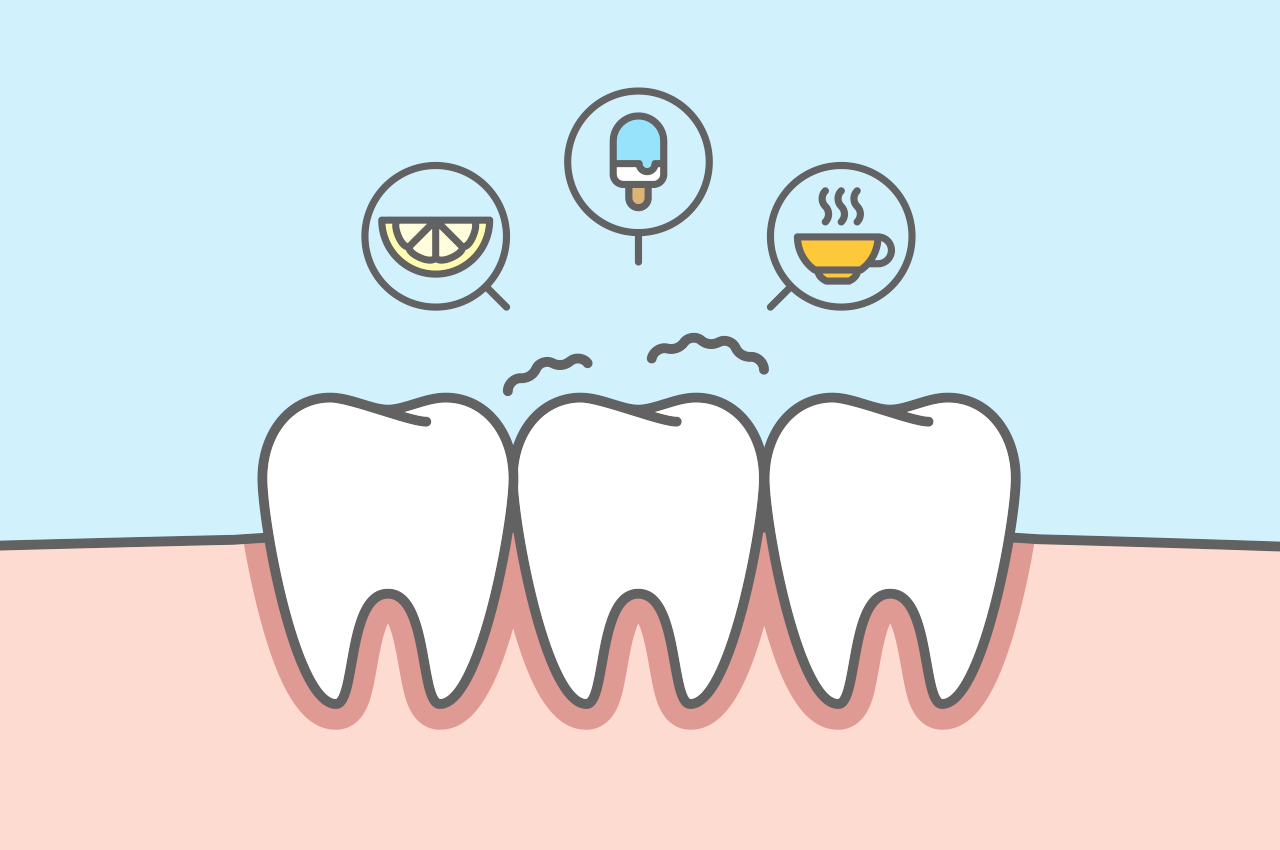Tooth sensitivity happens when the underlying layer of your teeth, the dentin, becomes exposed because of a receding gum tissue (the protective blanket that covers the tooth roots).
What causes sensitive teeth?
Cavities, cracked teeth, tooth whitening, receding gums, enamel or root erosion and gingivitis (gum disease) are some of the most common causes of sensitive teeth.
When are teeth more likely to be sensitive?
According to the Cleveland Clinic, these are the key factors contributing to sensitive teeth:
- Using a hard-bristled toothbrush or brushing too hard can wear down enamel and cause dentin to become exposed, and/or encourage gum recession.
- Gum recession happens to those who suffer from periodontal disease, which exposes the dentin.
Gingivitis, a gum disease that causes inflamed gums - Cracked teeth become filled with bacteria from plaque and cause inflammation in the pulp of the tooth.
- Teeth grinding or clenching can wear down enamel.
- Plaque build-up.
- Long-term use of mouthwash. Some over-the-counter mouthwashes have acids. If dentin is exposed the acids can make existing tooth sensitivity worse and also further damage the dentin layer.
- Acidic foods enable enamel reduction.
- Dental procedures can cause sensitivity after professional cleaning, root planning, crown replacement and other tooth restoration procedures. Usually the pain will disappear in four to six weeks.
Is there anything I should avoid if I have sensitive teeth?
- Avoid highly acidic foods.
- Steer clear of teeth-whitening products.
- Avoid teeth grinding. Consider getting a mouth guard.
Do I need to see my dentist?
When you experience persistent pain and sensitivity, especially on a single tooth, see a doctor. This could be a sign that there’s something more serious going on. Make sure to mention any tooth sensitivity to your dentist during your next visit.
Your dentist should be able to address sensitivity issues depending on its cause. Procedures like fillings, fluoride varnishes, fluoride gel or desensitising agents, a crown, an inlay or onlay, a surgical gum graft or a root canal can all help relieve nagging toothache.
How can I prevent sensitive teeth?
- Brush your teeth twice daily with a fluoride toothpaste (brush your teeth with softer strokes and use a soft bristled brush)
- Floss once a day
- Minimise teeth whitening
- Limit sugary, starchy, and acidic foods
- Limit alcohol intake
- Wear a mouth guard at night to prevent teeth grinding and clenching
- Visit a dentist regularly
- Quit smoking

